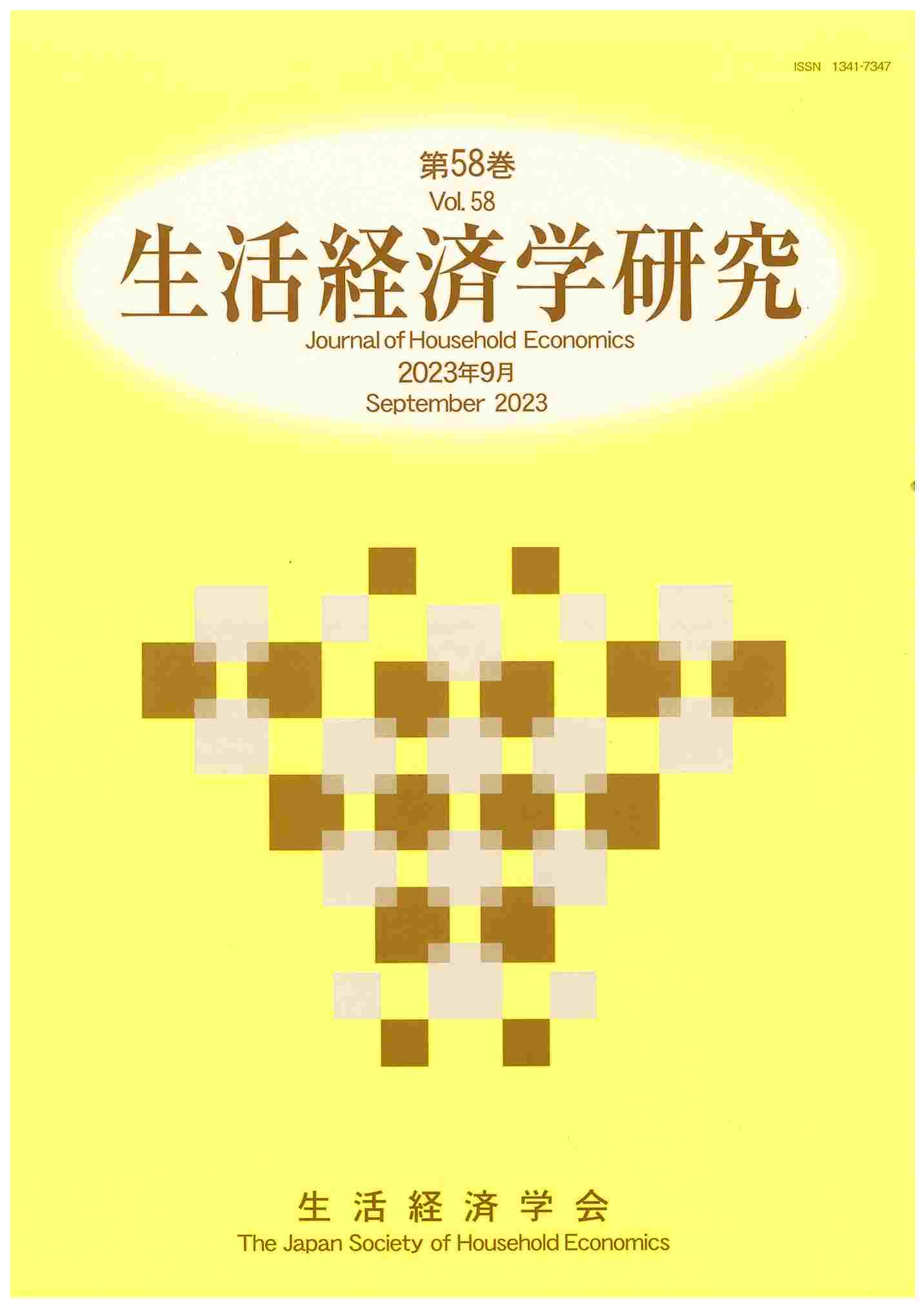Current issue
Displaying 1-6 of 6 articles from this issue
- |<
- <
- 1
- >
- >|
Articles
-
2023 Volume 58 Pages 1-18
Published: September 30, 2023
Released on J-STAGE: March 31, 2024
Download PDF (1770K) -
2023 Volume 58 Pages 19-30
Published: September 30, 2023
Released on J-STAGE: March 31, 2024
Download PDF (1320K) -
2023 Volume 58 Pages 31-44
Published: September 30, 2023
Released on J-STAGE: March 31, 2024
Download PDF (1645K)
Report on the Specified Subjects, Report on the panel discussion of Theme-specific breakout sessions
-
Article type: Report on the Specified Subjects 39th Annual Meeting of JSHE, 2023
2023 Volume 58 Pages 45-52
Published: September 30, 2023
Released on J-STAGE: March 31, 2024
Download PDF (793K)
Book Reviews
-
2023 Volume 58 Pages 53-56
Published: September 30, 2023
Released on J-STAGE: March 31, 2024
Download PDF (746K) -
2023 Volume 58 Pages 57-59
Published: September 30, 2023
Released on J-STAGE: March 31, 2024
Download PDF (668K)
- |<
- <
- 1
- >
- >|
